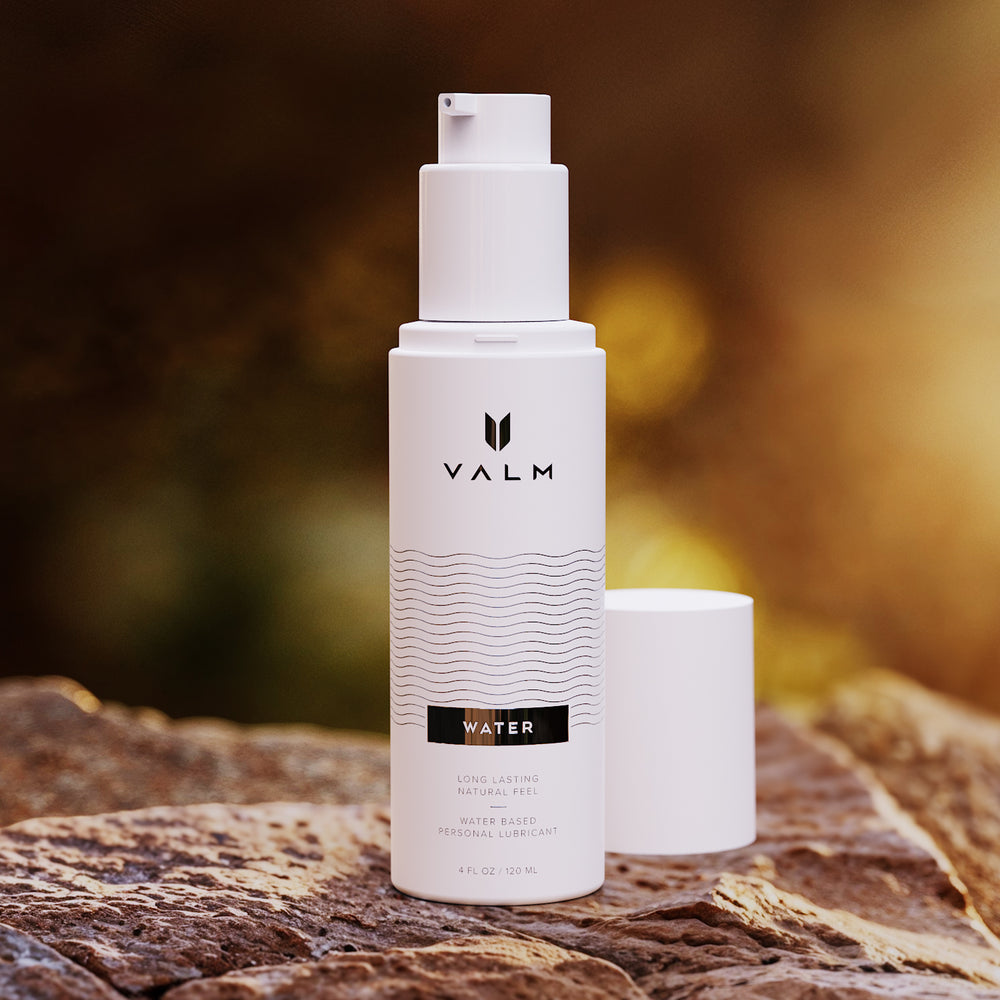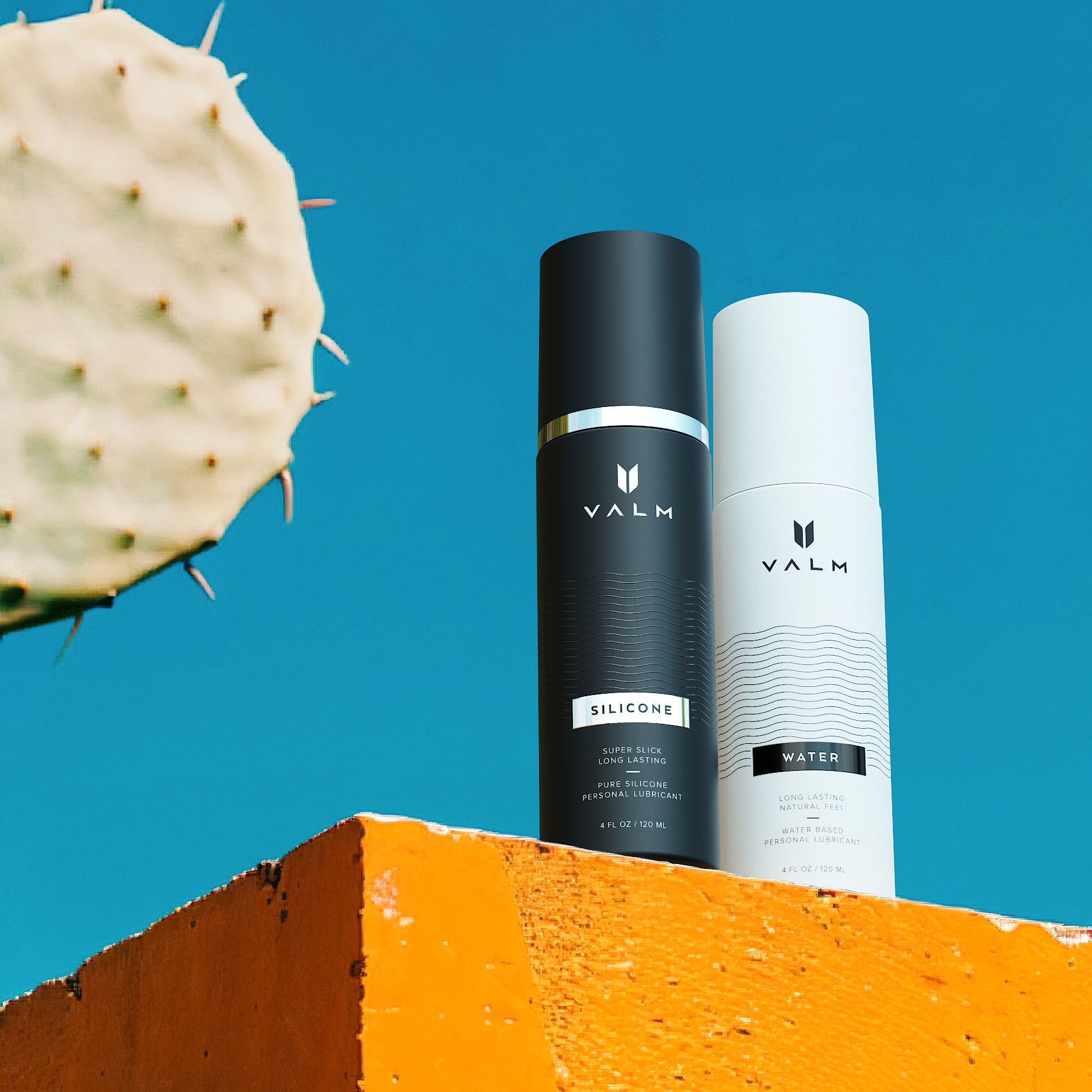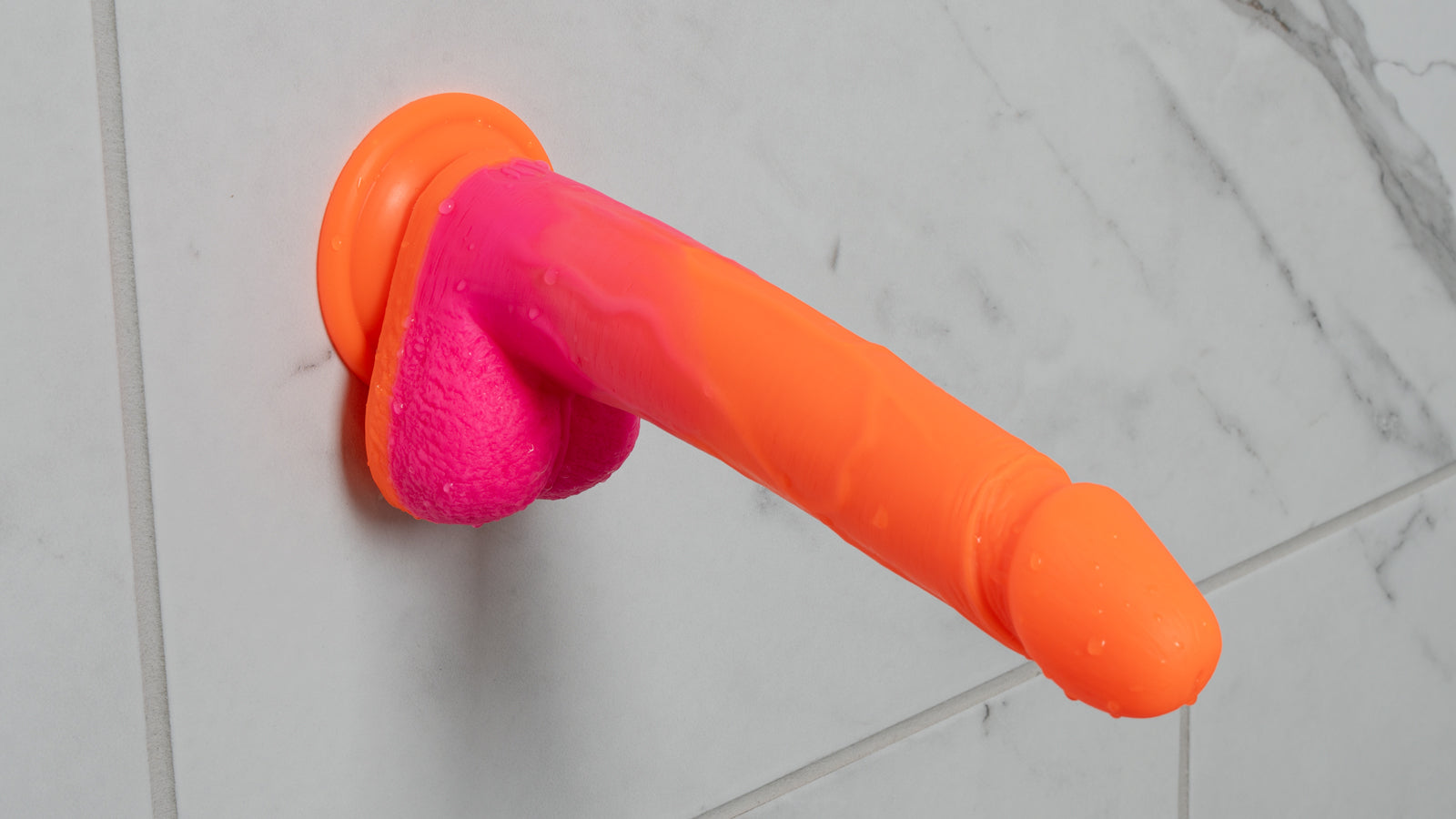Alright, let’s talk lube. Specifically, the ultimate showdown: water based vs silicone lube. If you’ve ever found yourself in the pharmacy aisle, eyes darting between two bottles, wondering which slippery savior to take home, you are not alone. Lube is like the best friend you never knew you needed—until you do. And trust me, once you start using it properly, you’ll wonder why you ever went without it.
I still remember my first encounter with lube. I was young, inexperienced, and had no clue what I was doing. I grabbed the cheapest water-based option from the drugstore, thinking lube was just lube. Spoiler alert: it was not. Within minutes, it turned into a sticky, glue-like mess, completely killing the mood. Lesson learned: not all lubes are created equal.
So, let’s get into the nitty-gritty of water based vs silicone based lube, break down the difference between water-based vs silicone-based lube, and help you make the best choice for every kind of adventure.
Silicone Lube vs. Water-Based Lube: A Detailed Comparison
To find the perfect match, we need to consider a few key factors: texture and feel, longevity, compatibility, and cleanup. Some lubes last forever, while others need a frequent refresh. Some play well with toys and condoms, while others... not so much. And let’s not forget cleanup—because nobody wants to spend the afterglow scrubbing sheets. So what are the differences between silicone and water based lube?
Slick vs. Wet: The Breakdown
Silicone-based lubricants are made from synthetic silicone compounds, offering a slick, glossy feel that lasts longer.
On the flip side, water-based lubes are primarily composed of water, providing a more natural sensation that closely mimics your body's own lubrication. Some water-based formulas also contain glycerin or aloe for additional moisturizing benefits. However, not all water-based lubes are created equal. Many contain ingredients like propylene glycol or glycerin, which can increase osmolality—a measure of how much dissolved material is in a liquid. High osmolality can lead to vaginal dryness, irritation, and an increased risk of infection, making it crucial to choose low-osmolality options when shopping for water-based lube.
Marathon vs. Sprint: Which Lube Lasts Longer?
Silicone lube is the champion of endurance! It doesn't dry out quickly and is waterproof, making it ideal for aquatic adventures in the shower or tub.
Water-based lube, while needing more frequent reapplication, is incredibly versatile and safe for use with all types of toys and condoms. It also comes in a variety of formulations, including flavored lubes and warming lubes, making it great for enhancing different experiences. If you're looking for a more vagina-friendly option, opt for a water-based lubricant with a lower osmolality to avoid unnecessary irritation.
I once learned the hard way that silicone lube is not always the best option. Picture this: a romantic getaway, a luxurious hot tub, and a bottle of silicone lube. It seemed like the perfect combo—until I tried to get out of the tub and nearly broke my neck because the lube had turned the floor into a slip-and-slide. Safe to say, I now double-check my surroundings before getting too adventurous.
Clean Up: Sticky Fingers or Effortless Rinse?
Water-based lube shines in this category—it's easy to clean up, leaving no residue on your sheets or skin.
Silicone lube, while fantastic for many activities, can be trickier to wash off and may stain fabrics. Plus, silicone lube is not compatible with silicone toys, as it can degrade the material over time. However, silicone lube is an excellent option for massage and can double as a body moisturizer in a pinch.
Pros and Cons of Water-Based Lube
We’ve covered the basics, but now it’s time to take a closer look about the pros and cons of water-based vs silicone-based lube. Water-based lube has its strengths—versatility, compatibility, and easy cleanup—but it also comes with a few trade-offs. Let’s break it down so you can decide if it’s the right fit for you.
Pros:
- Toy-friendly: Safe for all sex toys, including silicone ones.
- Easy cleanup: Rinses off with water and leaves no sticky residue.
- Safe for condoms: Works with all types of condoms.
- Feels natural: Mimics natural lubrication for a comfortable experience.
- Variety of options: Available in flavored, cooling, and warming formulas.
- Vegan and cruelty-free: Many brands ensure ethical production with paraben-free, body-safe ingredients.
- Lower osmolality options available: Reduces the risk of vaginal irritation and dryness.
Cons:
- Dries out faster: Requires reapplication during longer sessions.
- Not ideal for water play: Washes away easily in showers and pools.
- Some formulas can be sticky: Lower-quality options may leave a tacky feeling.
- High-osmolality formulas may cause irritation: Check the ingredient list before purchasing.
Valm's Water Based Lube:
Meet your new bedside essential—Valm’s water-based lube delivers a silky, long-lasting glide that feels so natural, you’ll forget it’s there (until you realize how much better everything feels). Whether you're flying solo, getting cozy with a partner, or exploring with your favorite toy, this lube has your back—and everywhere else.
Why you'll love it:
- Feels like the real thing—just with extra slip and zero friction
- No sticky mess—because no one likes post-fun cleanup struggles
- Toy and condom-friendly—because safe, smooth fun is the best kind
- Hypoallergenic and body-safe—because your skin deserves only the good stuff
- FDA 510(k) Cleared—because quality is non-negotiable

Water-Based Lube
- Natural feel
- Long-lasting
- Neutral pH levels
- Body-safe ingredients
Pros and Cons of Silicone-Based Lube
Silicone-based lube brings long-lasting glide and waterproof fun to the table, but it’s not without its downsides. Just like with water-based options, there are key factors to consider before making it your go-to. Let’s break down the pros and cons so you know exactly what to expect.
Pros:
- Long-lasting: Requires less reapplication for extended sessions.
- Waterproof: Perfect for shower, pool, and hot tub activities.
- Ultra-smooth feel: Provides a luxurious glide for comfort and pleasure.
- Great for anal play: Offers excellent lubrication for more intense experiences.
- Can be used for massage: Works well as a body moisturizer and massage oil.
- Hypoallergenic: Generally free from common irritants, making it suitable for sensitive skin.
- No osmolality concerns: Does not dry out or pull moisture from vaginal tissue.
Cons:
- Not safe for silicone toys: Can degrade silicone-based materials.
- Harder to clean: Requires soap and water for removal.
- Can stain fabrics: May leave residue on sheets and clothing.
- Higher cost: Generally more expensive than water-based options.
Valm’s Silicone Lube
Ready for a lube that never quits? Valm offers two options when it comes to silicone lube:
Valm’s silicone-based lube, designed for ultra-smooth, long-lasting glide without the constant need for reapplication. This formula is 100% waterproof, meaning you can take the fun into the shower, bathtub, or wherever inspiration strikes—because who says pleasure should stay dry?
Why you’ll love it:
- Silky, never sticky—because tacky is for tape, not your lube
- Waterproof & shower-friendly—for those steamy, no-slip moments
- pH-neutral & hypoallergenic—because your body deserves the best
- Condom-compatible & FDA-approved—safety first, fun always
- Perfect for extended play—because sometimes, once just isn’t enough
Silicone Lube
- 100% Silicone
- pH-Neutral
- Hypoallergenic
- Condom Compatible
On the other hand, when it comes to backdoor play, you want a lube that’s long-lasting, ultra-smooth, and never sticky—and that’s exactly what Valm delivers. Valm's silicone anal lube formula is designed to reduce friction, enhance comfort, and keep things effortlessly slick, so you can focus on pleasure, not reapplying.
Why you’ll love it:
- Extra-long glide—because stopping to reapply is a buzzkill
- Silky-smooth & never sticky—just pure, uninterrupted pleasure
- pH-neutral & hypoallergenic—gentle on sensitive areas
- Condom-compatible & FDA-approved—because safety is sexy
- 100% waterproof—perfect for wet & wild adventures
Silicone Anal Lube
- 100% Silicone
- pH-Neutral
- Hypoallergenic
- Condom Compatible
Which Lube is Best for What?
Let's recap:
- Solo play with toys? Water-based lube is the best choice to keep your silicone toys in great condition.
- Vaginal sex? Either works, but a low-osmolality water-based lube is the safest bet for long-term vaginal health.
- Anal play? Silicone-based lube wins for its long-lasting glide and extra smoothness.
- Condom use? Both work, but avoid oil-based lubes as they degrade latex.
- Shower, pool, or water play? Silicone-based lube is the only way to go since it won't wash away.
- Sensory enhancement? Water-based lubes come in warming and cooling formulas for extra stimulation.
- Massage use? Silicone-based lubes can double as a massage oil.
- Eco-conscious choice? Many water-based and hybrid lubes now come in plant-based, cruelty-free options.
If You're Still Think Lube is An Option
Did you know the ancient Romans used olive oil as lube? And in Japan, they historically used kudzu plant-based lubricants? (Talk about organic options.)
Lube has been around for centuries, evolving from animal fats to today’s high-tech, FDA-approved formulas. So next time someone tries to shame you for keeping a bottle in your nightstand, remind them that lube is literally ancient history.
Lube isn’t just about fun—it also has real benefits for sexual health. It helps reduce friction, prevent microtears, and lower the risk of infections. But be careful—some lubes have high osmolality, meaning they pull moisture out of vaginal tissue, which can cause irritation. Low-osmolality lubes are the way to go for vaginal health and Valm's lubes are safe to start with.
The Verdict: Water-Based vs Silicone-Based Lube
At the end of the day, choosing between water vs silicone lube comes down to how, where, and with what you’re using it. Water-based is the all-around MVP, compatible with everything but easily washed away. Silicone-based is the endurance champ, perfect for wet environments and long-lasting sessions, but it can be a nightmare to clean up and a no-go for silicone toys.
However, if you’re using water-based lube, be mindful of its osmolality. A high-osmolality formula can actually dry out vaginal tissue instead of keeping things slick. If you want a vagina-friendly water-based option, look for low-osmolality formulas that won’t disrupt your body's natural balance.
The best solution? Honestly, have both in your bedside drawer. Different situations call for different tools, and when it comes to pleasure, there’s no such thing as being too prepared.
So go forth, stay slick, and lube responsibly.


